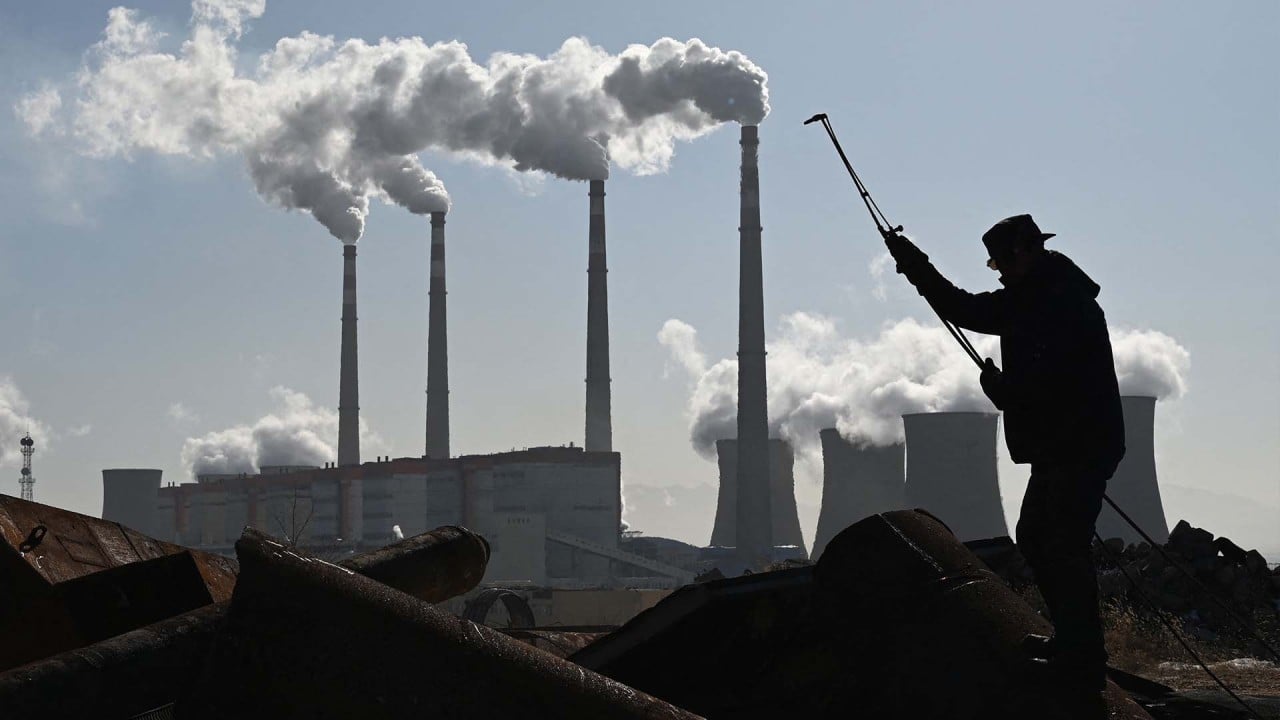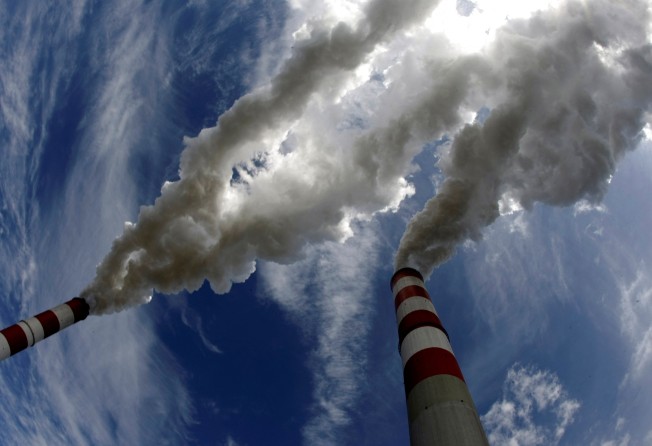
03:07
Climate deal to ‘phase down’ coal reached at COP26 as nations seek to avert climate disaster

The world needs US$100 trillion in investments to decarbonise and reach net zero carbon emissions by 2050, with China requiring nearly a quarter of the green investments, according to a new report.
The US$100 trillion in green investments represents around 15 per cent of total global investment over the next 30 years, or around 3 per cent of global gross domestic product (GDP) over the same period, BNY Mellon Investment Management and Fathom Consulting said in a report released on Tuesday.
Reaching net zero carbon emissions by 2050 is crucial to limiting temperature increases to the key global warming threshold of 1.5 degrees Celsius above pre-industrial levels.
China will need US$23.8 trillion of green investments, more than any other country, due to the size of its economy and its fast pace of growth, according to the report’s authors Shamik Dhar, chief economist of BNY Mellon Investment Management, and Brian Davidson, head of climate economics at Fathom Consulting.
China was “expected to grow faster than most economies between now and 2050 and more investment, including green investment, will be needed to support this growth,” they said.
“The sectors that are responsible today for a lot of the global carbon emissions, and the ones that are most exposed to transition risks, are the ones that need to do most of the investment to help get us to net zero,” said Fathom Consulting’s Davidson at a media briefing.
A higher-than-average share of electricity production in China comes from fossil fuels and the country’s GDP also has an above-average carbon dioxide intensity, according to the report.
According to the National Energy Administration, coal-fired power plants produced 60 per cent of China’s electricity in 2021, making them the largest carbon-emitting sector in the country, followed by the iron and steel sector.
The energy and utilities sectors face the largest climate transition challenges and are therefore most in need of capital to decarbonise, and allocating over half of the green corporate investment to these sectors will be crucial in reaching 2050 targets, the report said.
Suppliers providing these industries with the means to decarbonise may reap the greatest rewards, and some of the largest beneficiaries are likely to be companies producing battery storage, grid infrastructure and piping for carbon capture, hydrogen and natural gas, the report added.
Half of global emissions are generated in Asia, making the region extremely significant in terms of its environmental impact on climate change efforts, JPMorgan said in a report in September.
China accounted for 30 per cent of global carbon-dioxide emissions in 2020, according to BP.
“China is a highly relevant market for net zero investors given both the 2020 carbon neutrality commitment, but also in light of China’s share of global emissions,” Hannah Lee, JPMorgan’s head of Asia-Pacific ESG equity research, said in an emailed interview.
She was referring to Chinese President Xi Jinping’s pledge in September 2020 that the nation would hit peak carbon emissions before 2030 and achieve carbon neutrality by 2060.
“Companies in the Asia-Pacific that have made a net zero commitment and demonstrated a reduction in emissions intensity have outperformed the market [by over] 15 per cent over the past two years,” Lee said.
She added that there was strong potential for early stage decarbonisation enabling technologies to replicate the strong market performance of China’s electric vehicle battery and photovoltaic industries, once they reach a tipping point in terms of cost effectiveness and adoption.